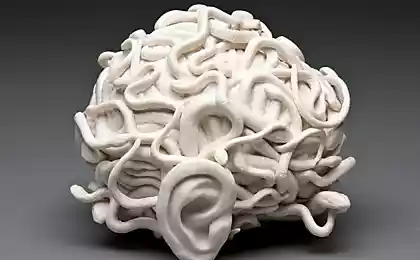297
7 Mistakes That Will Ruin Your Life
Ecology of life. Psychology: What is the cause of our failures and failures? Here are the most hurtful mistakes in life, the understanding of which can radically change the quality of your existence and open the door to true happiness.

Why do some people succeed and feel full of life, while others, despite equal starting opportunities, constantly face disappointments? Research in positive psychology suggests that it is not about luck or innate qualities, but about certain behavioral patterns that we unconsciously cultivate throughout life.
We all make mistakes. But some mistakes turn out to be systemic, turning into destructive habits of thought that, like invisible anchors, keep us in place when we could move forward. Recognizing these mistakes is the first step to overcoming them. Let’s look at seven of the most common and destructive misconceptions that prevent us from living fully.
1. Perfectionism: Chasing the Unattainable
At first glance, striving for perfection seems a virtue. Psychologists have long recognized the destructive nature of perfectionism. According to research by Dr. Thomas Kurz of the University of Edinburgh, excessive self-demand is associated with an increased risk of anxiety disorders, depression and even suicidal thoughts.
Signs of toxic perfectionism:
- You put off starting out of fear of not doing it perfectly.
- Success is not satisfying because “it could have been better.”
- You are extremely sensitive to any criticism.
- Even minor mistakes cause intense shame and self-flagellation.
Perfectionism causes us to set unrealistic goals and then brutally blame ourselves for failing to achieve them. It is a vicious cycle of frustration that slowly destroys self-esteem and drains resources.
Practical advice: Replace perfectionism with a healthy pursuit of mastery. Instead of “I have to do it flawlessly,” use the attitude “I’ll do it as well as I can right now and try to improve every time.” Learn to recognize and celebrate your successes, even small ones.
2. Procrastination: postponing life for later
Procrastination is not just laziness or a bad habit. Neurobiological studies show that this is a complex psychological mechanism associated with difficulties in self-regulation and fear of failure. In today’s distracting world, the problem is becoming epidemic.

According to a University of Calgary study, chronic procrastination reduces productivity by 40% and is one of the top sources of stress for 64% of respondents. But more importantly, we put off not just work, but personal development, relationships, dreams, and ultimately life itself.
Procrastination is like a credit card for time: we get instant pleasure now, but pay much more in the future - missed opportunities, stress, and low self-esteem.
Practical advice: Use the 5-minute technique. Promise yourself to work on a challenging task for just 5 minutes. After that, you can stop, but most often, once you start, you will continue to work. Also break down big goals into specific, measurable tasks and create clear deadlines. It is important to create a system of external accountability – to tell a friend or mentor about your plans.
3. Emotional Reactivity: When Emotions Control Us
Our emotions are a valuable tool for perceiving the world. However, when we allow impulsive emotional reactions to determine our decisions and behaviors, we lose control of our lives.
Research in neuroscience confirms that there is a short time between emotional stimulus and response. This is where our freedom of choice lies—the ability to consciously decide how to respond instead of acting automatically.
Signs of emotional reactivity:
- You often say or do things that you later regret.
- Your mood is highly dependent on external circumstances.
- You can easily “wind up” in response to provocations.
- Emotions often overshadow rational thinking
Learning to manage emotional reactivity means finding true inner freedom. This does not mean suppressing emotions, but rather being aware of them and integrating them into the wider context of your personality.
Practical advice: Practice the pause technique. When you feel a strong emotion rolling in, take a deep breath and count to ten before you react. Regular mindfulness meditations will help you develop the ability to observe your emotions without immediate response. Studies show that even 10 minutes of daily practice can significantly reduce emotional reactivity after 8 weeks.
4. Fixed Thinking: Belief in Unchangeable Ability
Psychologist Carol Dweck of Stanford University has identified two types of attitudes about our abilities: fixed thinking and growth thinking. Fixed-minded people believe that their qualities are static: “I’m naturally bad at counting” or “I don’t have creativity.” This belief undermines motivation and leads to the rejection of attempts to develop in “inappropriate” areas.
In contrast, the growth mindset is based on the belief that any ability can be developed through practice and learning. This attitude stimulates curiosity, perseverance and a love of learning even in the face of difficulties.
Dweck’s research shows that people with a growth mindset achieve more in the long run, cope better with setbacks, and exhibit greater psychological resilience in stressful situations.
Fixed thinking is often disguised as self-knowledge: “I just know my limits.” In fact, it is a form of self-restraint that creates artificial barriers to fulfilling potential.
Practical advice: Track your thoughts and reformulate them. Instead of “I can’t,” say “I can’t yet, but I can learn.” Add the word “yet” to the difficulties: “I don’t understand this topic yet.” Celebrate the process, not just the result – value effort and progress, not just achievement.
5. Social Comparison: Measuring Yourself by Others’ Measurements
In the age of social media, we are constantly tempted to compare our real lives to edited versions of other people's lives. Research published in the Journal of Social and Clinical Psychology found a direct link between time spent on social media and increased levels of depression and loneliness.
Compulsive social comparison leads to a paradoxical situation: we either feel inferior by comparing ourselves to those who seem more successful, or we get a false sense of superiority by comparing ourselves to the less fortunate. Both of these conditions are toxic and hinder genuine self-acceptance and personal growth.

How social comparison destroys us:
- Constantly feeling dissatisfied with your life
- Burnout from trying to conform to unrealistic standards
- Inability to celebrate your own achievements
- Decreased self-esteem and increased anxiety
True progress begins only when we stop measuring our worth against others and start competing only against ourselves with yesterday.
Practical advice: Conduct a “digital detox” from social media for at least 1-2 days a week. Keep a gratitude journal focusing on what is valuable in your life. Practice “bottom-up comparison” – when you compare yourself today to yourself in the past, marking personal progress and growth.
6. Avoiding discomfort: fear of the unknown
Our brains are evolutionarily programmed to avoid discomfort and uncertainty. However, it is beyond the comfort zone that real growth occurs. Research shows a paradoxical phenomenon: people focused on comfort in the short term experience more stress and anxiety in the long run due to missed opportunities and limited development.
Psychological flexibility—the ability to remain open to experience even when accompanied by discomfort—is one of the key predictors of psychological well-being, according to numerous studies in acceptance and responsibility therapy (ACT).
Avoiding discomfort manifests itself in many ways: avoiding the risk of starting a new business, avoiding difficult conversations, refusing physical or intellectual challenges. Gradually, the circle of our lives narrows to a predictable but limited space.
Practical advice: Practice "discomfort microdoses" daily. This can be a cold shower, talking to a stranger, exploring a complex topic, or any other activity that causes light tension. Gradually expand your comfort zone by noticing how temporary discomfort leads to sustained personal growth.
7. External Validation: Dependence on Approval
The need for approval is natural for social beings. However, excessive reliance on external validation makes us hostage to others’ opinions, undermines autonomy, and hinders the development of an internal compass of values.
Research in developmental psychology indicates that people with intrinsic value systems are more resilient to stress, make more informed decisions, and generally experience higher levels of subjective well-being.
Signs of dependence on external validation:
- You often adjust to the expectations of others, even if it contradicts your desires.
- Criticism is seen as a personal disaster.
- You often ask the opinions of others before making a decision.
- You measure success by the reactions of others, not by conforming to personal values.
As long as we are attached to others’ assessments, we cannot find true inner freedom and self-determination. Our identity becomes a set of roles that we perform to gain approval.
Practical advice: Make a list of your core values. Start making decisions based on these values, not the perceived reaction of others. Practice “inner approval”—note and celebrate actions that align with your values, regardless of external evaluation.
The path to a conscious life
Overcoming these seven fundamental mistakes is not a one-time event, but a continuous process of personal growth. Start by recognizing these patterns in your life. Then work consistently to replace limiting beliefs with supportive ones.
Remember, small, consistent changes in thinking and behavior over time lead to dramatic shifts in quality of life. Practice mindfulness, self-reflection, and patience with yourself are your main allies along the way.
The most hurtful mistake in life would be to recognize these truths and not change anything. Start today and let each day be a step toward the more conscious and fulfilling life you truly deserve.
Glossary
Perfectionism
A personality trait characterized by a desire for impeccability, the establishment of excessively high standards of performance and a pronounced tendency to critically evaluate their achievements.
Procrastination
A psychological condition in which a person postpones important tasks to a later date, despite the potential negative consequences of this delay.
Emotional reactivity
Proneness to rapid and intense emotional responses to stimuli without prior cognitive processing.
The Growth Mindset
A concept developed by psychologist Carol Dweck describes the belief that abilities and intelligence can be developed through perseverance, learning, and perseverance.
Fixed thinking
The belief that human qualities such as intelligence or talent are static and immutable characteristics that cannot be developed.
Psychological flexibility
The ability to fully communicate with the present moment as a conscious human being and to change or continue behavior when it serves selected values.
External validation
Affirmation of one’s own worth and significance through approval or acceptance by others, rather than through an internal system of values.
What is Food Sensitivity and Why is it Important to Know It?
What are enzymes for? Secrets of the biological catalysts of life























